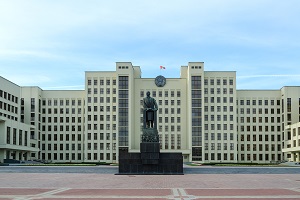
We live in uncertain times with strong divisive forces and global processes at play. Amid this uncertainty, the 2030 Sustainable Development Agenda provides a strong vision that defines our ambitions and is shaping policy actions –at the national, regional and global levels.
There is a potential for increased economic interaction among the member States of the United Nations Economic Commission for Europe (UNECE) that remains untapped. Vibrant economies thrive on the efficiency gains that trade makes possible, high levels of innovation and the ability to mobilise resources to tackle different infrastructure needs. Further integration in the trade, transport and energy sectors will be a key factor in facilitating connectivity and sustainable development in the region.
An integrated, multi-sector approach to future cooperation in the region was the subject of a high-level international conference on “Laying the foundation in the UNECE region for economic integration and sustainable development towards 2030”, jointly organized by the UNECE and the Government of Belarus on 26-27 October in Minsk. The Conference identified areas where regional cooperation leading up to the year 2030 could yield significant benefits and discussed the barriers and bottlenecks that are preventing closer integration in the region. In view of current trends, and taking into account various alternative economic and technological possibilities, the Conference explored different scenarios and policy options for future regional integration and cooperation based on peaceful coexistence and respect for international law.
“Integration is ultimately a means towards achieving high living standards and sustainable development, said UNECE Executive Secretary Christian Friis Bach. In these times, when the benefits of openness and closer international cooperation are often questioned, we need to ensure that our institutions and regulations effectively contribute to this aim. And we need to reassert the value of dialogue as an essential tool for building the trust which is indispensable for cooperation in support of progress in our region.”
The Conference showed that there is a strong case to be made for pragmatic cross-border and cross-sectoral collaboration. Standards and best practices – the core business of UNECE – are critical in creating development strategies that integrate trade, transport, energy markets, transnational public-private partnerships, new investment approaches and innovation. More broadly, they are also key elements in facilitating cooperation and integration in the region and in reaching the sustainable development goals.
"We need to jointly develop a strategy for common action in today’s changing conditions”, said Sahib Mammadov, the Deputy Minister of Economy of Azerbaijan.
“The Eurasian Economic Union is willing to be a reliable partner for anyone wishing to develop cooperation”, Russian Deputy Minister of Foreign Affairs Vasily Nebenzya said.
“Belarus is on the dividing line between the Eastern and Western integration processes”, said Vladimir Makei, the Minister of Foreign Affairs of Belarus, “Therefore, we see only one option: equitable, peaceful, mutually respectful dialogue."
Mr Friis Bach offered UNECE to serve as a platform for technical cooperation to facilitate this dialogue and develop different regional initiatives in support of the sustainable development goals.

